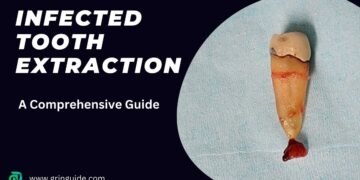Table of Contents
Introduction to Family Dentistry
Family dentistry is a comprehensive approach to dental care that caters to the unique needs of individuals at every stage of life. Unlike general dentistry, which may target a specific age group, family dentistry encompasses a wide range of services designed to address the dental health of children, adults, and seniors alike. This holistic approach ensures that everyone in the family can receive the care they need under one roof, making it incredibly convenient and efficient.
One of the primary advantages of choosing a family dentist is the continuity of care. Having a single dental care provider for all family members allows for a consistent treatment approach and the ability to track and manage the dental health of each individual over time. This consistency helps in identifying and addressing issues early, often resulting in more effective treatment outcomes. Additionally, a family dentist becomes familiar with the entire family’s dental history, which can be crucial in diagnosing and preventing hereditary dental issues.
Another significant benefit is the development of a long-term trust relationship between the dentist and the family. This trust can be particularly beneficial for children and seniors, who may feel anxious about dental visits. A family dentist who is familiar with their patients can create a more comfortable and reassuring environment, encouraging regular dental check-ups and better oral health habits.
Family dentistry services are extensive and can include routine cleanings, fluoride treatments, cavity fillings, orthodontics, and even cosmetic procedures. By offering a broad spectrum of dental services, a family dentist can address the evolving dental needs of each family member, ensuring healthy smiles for years to come. In essence, family dentistry not only simplifies dental care logistics but also fosters a proactive approach to maintaining oral health, making it an invaluable choice for families aiming for lifelong dental wellness.
Choosing the Right Family Dentist
Finding the right family dentist is crucial in ensuring the dental health and well-being of every family member, from young children to elderly adults. The first step in this process is to evaluate the qualifications and experience of potential dentists. A proficient family dentist should have the necessary credentials, including a valid dental license and relevant certifications. Ideally, they should also have extensive experience in providing comprehensive dental care to patients of all ages.
Another critical factor is the range of services offered. A well-rounded family dentistry practice should provide a variety of treatments, including preventive care, restorative procedures, orthodontics, and cosmetic dentistry. This ensures that all family members can receive the care they need under one roof, making dental visits more convenient and cohesive.
The office environment also plays a significant role in selecting the appropriate family dentist. A welcoming and child-friendly atmosphere can help alleviate anxiety, especially for young children who may be apprehensive about dental visits. During a consultation visit, observe how the dentist and their team interact with patients. Effective communication skills are vital, as they ensure that the dentist can explain procedures and address any concerns clearly and empathetically.
Moreover, pay attention to the attitudes of the dental team towards young children. A family dentist who is patient, gentle, and adept at handling children can make dental visits a positive experience, fostering good oral hygiene habits from an early age. It’s essential that the dentist can build a trusted relationship with each family member, promoting regular dental check-ups and long-term oral health.
In essence, selecting the right family dentist involves careful consideration of their qualifications, the breadth of services offered, the office environment, and the team’s approach to patient care. By prioritizing these factors, you can ensure that your family receives high-quality dental care in a supportive and nurturing setting.
Services Offered in Family Dentistry
Family dentistry encompasses a wide array of services designed to meet the diverse dental needs of patients at every stage of life. One of the primary services provided by family dentists is preventative care. Regular cleanings and check-ups are essential for maintaining oral health, preventing the onset of dental diseases, and catching any potential issues early. These routine visits typically include professional teeth cleaning, fluoride treatments, and thorough examinations to ensure that patients’ teeth and gums remain in optimal condition.
In addition to preventative care, family dentists offer a variety of restorative services to repair damaged or decayed teeth. Fillings are commonly used to treat cavities, while crowns can restore the function and appearance of a tooth that has been significantly compromised. Dental implants and bridges are also available to replace missing teeth, ensuring that patients can enjoy a complete, healthy smile.
Cosmetic procedures are another important aspect of family dentistry. Teeth whitening is a popular service that can enhance the aesthetic appeal of a patient’s smile by removing stains and discoloration. Veneers and bonding may also be used to correct imperfections such as chips, cracks, or gaps between teeth, contributing to a more confident and attractive appearance.
Family dentists are also well-equipped to handle orthodontic treatments. These treatments, which include traditional braces and modern aligners, are designed to correct misaligned teeth and bite issues. By offering orthodontic solutions, family dentists help patients achieve straighter, healthier smiles, improving both function and aesthetics.
The comprehensive nature of family dentistry ensures that patients receive personalized care tailored to their unique needs. Whether it’s a young child requiring their first dental check-up or an adult seeking advanced restorative work, family dentists are committed to promoting and preserving the oral health of individuals at every stage of life.
Ensuring the dental health of children is a crucial aspect of family dentistry, and it involves specialized care tailored to young smiles. Pediatric dentistry emphasizes the importance of early dental visits, typically starting by age one. These initial visits are essential as they allow family dentists to monitor the development of a child’s teeth and gums closely. Early assessment helps identify potential issues before they become significant problems, thereby fostering a lifetime of healthy dental habits.
One of the primary concerns in pediatric dentistry is the prevention and treatment of cavities, which are prevalent among children. Family dentists play a vital role in educating both parents and children about proper oral hygiene practices, such as regular brushing and flossing, and the importance of a balanced diet in preventing tooth decay. Additionally, they provide preventive treatments like fluoride applications and dental sealants, which offer an extra layer of protection against cavities.
Another common issue that family dentists address is thumb sucking, a habit that can affect the alignment of teeth and the development of the mouth. Through gentle guidance and positive reinforcement, family dentists help children break this habit, ensuring it does not lead to long-term dental problems. Furthermore, early orthodontic assessments are crucial in pediatric dentistry. Family dentists are trained to recognize early signs of misalignment and other orthodontic issues, allowing for timely intervention and potentially less invasive treatments in the future.
Creating a comfortable and stress-free environment for children during dental visits is a cornerstone of family dentistry. Family dentists employ various techniques to alleviate anxiety and fear, making the experience more enjoyable for young patients. This approach not only ensures that children receive the necessary dental care but also helps build a positive attitude towards dental visits, encouraging regular check-ups throughout their lives.
Adolescent Dental Care: Transitioning to Adult Teeth
Adolescence marks a significant period in dental health, characterized by the transition from childhood to adult teeth. During this phase, teenagers face unique dental challenges that require specialized care. One of the primary concerns is the monitoring of wisdom teeth. These third molars typically emerge between the ages of 17 and 25, and they can cause various issues if not properly managed. Regular dental check-ups are crucial to monitor their growth and determine if extraction is necessary to prevent overcrowding or impaction.
Orthodontic treatments are another critical aspect of adolescent dental care. Many teenagers undergo orthodontic procedures such as braces or aligners to correct misaligned teeth and bite issues. Maintaining oral hygiene becomes particularly important for those with braces, as food particles can easily get trapped, leading to plaque buildup and potential cavities. It is essential for teens to follow a rigorous oral hygiene routine, including brushing after every meal, flossing daily, and using mouthwash to ensure their teeth and gums remain healthy.
Diet and lifestyle choices also play a significant role in the dental health of adolescents. Consumption of sugary snacks and beverages can increase the risk of cavities, while acidic foods and drinks can erode enamel. Encouraging a balanced diet rich in fruits, vegetables, and calcium can promote stronger teeth and gums. Additionally, lifestyle habits such as smoking or using tobacco products can have detrimental effects on oral health, increasing the risk of gum disease and oral cancer.
Regular dental check-ups are indispensable for adolescents to prevent and manage dental issues. Dentists can provide professional cleanings, fluoride treatments, and sealants to protect against cavities. They can also educate teens on the importance of maintaining good oral hygiene practices and make necessary recommendations for orthodontic care. By addressing these unique dental needs, family dentistry ensures that teenagers transition smoothly into adulthood with healthy, confident smiles.
Adult Dental Care: Maintaining Healthy Teeth and Gums
Maintaining optimal dental health is essential for adults, encompassing a broad spectrum of preventative and restorative care. Family dentistry plays a crucial role in addressing the unique dental needs of adults, emphasizing the importance of routine check-ups and cleanings. Preventative care is the cornerstone of adult dental health, aiming to avert potential issues before they manifest. Regular dental visits, ideally biannually, facilitate early detection of cavities, gum disease, and other oral health concerns, ensuring timely intervention and treatment.
Gum disease, or periodontal disease, is a prevalent issue among adults and can lead to serious complications if left untreated. Family dentistry professionals stress the significance of maintaining good oral hygiene practices, such as brushing twice daily with fluoride toothpaste and flossing, to prevent the onset of gum disease. In cases where gum disease is present, treatments may include scaling and root planing, antibiotics, or more advanced surgical procedures, depending on the severity of the condition.
Restorative procedures are integral to adult dental care, addressing issues such as tooth decay, fractures, and tooth loss. Common restorative treatments include fillings, crowns, bridges, and dental implants. These procedures not only restore the function of the teeth but also enhance the appearance, contributing to a renewed sense of confidence and well-being. Additionally, family dentistry offers solutions for cosmetic concerns, such as teeth whitening, veneers, and orthodontics, to achieve a healthy and aesthetically pleasing smile.
Lifestyle choices significantly impact dental health in adults. A diet high in sugar and acidic foods can lead to tooth decay, while smoking and excessive alcohol consumption are major risk factors for gum disease and oral cancer. Adopting a balanced diet, rich in fruits, vegetables, and whole grains, alongside regular dental visits, can substantially reduce these risks and promote long-term oral health.
In conclusion, adult dental care through family dentistry encompasses a comprehensive approach to maintaining healthy teeth and gums. By prioritizing preventative care, addressing lifestyle factors, and utilizing restorative and cosmetic procedures, adults can achieve and sustain optimal dental health, ensuring a vibrant smile throughout their lives.
Senior Dental Care: Addressing Age-Related Dental Issues
Aging brings about various changes in the body, and dental health is no exception. Seniors often face specific dental challenges that require special attention. One common issue is xerostomia, more commonly known as dry mouth. This condition, often a side effect of medications, can lead to difficulty in speaking, eating, and swallowing, in addition to increasing the risk of tooth decay and gum disease.
Gum disease, or periodontal disease, is another prevalent concern among older adults. It can progress from gingivitis to more severe forms, leading to tooth loss if untreated. Regular visits to a family dentist can help in early detection and management of gum disease, preventing its advancement and maintaining healthy gums.
Tooth loss is a significant issue for many seniors, affecting their ability to chew food properly and impacting their overall nutrition and quality of life. Family dentistry offers several solutions to address tooth loss, including dentures and dental implants. Dentures can provide a removable option for missing teeth, while dental implants offer a more permanent solution that closely mimics natural teeth.
The role of a family dentist is crucial in managing these age-related dental issues. Through regular check-ups, cleanings, and tailored treatment plans, family dentists can help seniors maintain their oral health. Early detection of potential problems allows for prompt intervention, which can prevent more severe issues down the line.
Moreover, family dentists can educate seniors about proper oral hygiene practices and provide guidance on how to manage the side effects of medications that impact oral health. This comprehensive approach ensures that seniors can enjoy a better quality of life with healthy, functional smiles.
In conclusion, addressing the dental health challenges faced by seniors is an essential aspect of family dentistry. Regular dental visits play a pivotal role in early detection and effective management of these issues, ensuring that older adults can maintain their oral health and overall well-being.
The Benefits of Preventative Dental Care
Preventative dental care is a cornerstone of family dentistry, focusing on maintaining optimal oral health and preventing dental issues before they arise. This proactive approach encompasses various measures, including fluoride treatments, dental sealants, and regular cleanings, all designed to support long-term dental wellness for individuals of all ages.
Fluoride treatments are a key component in strengthening tooth enamel and making teeth more resistant to decay. By applying a concentrated fluoride solution to the teeth, dental professionals can significantly reduce the risk of cavities, particularly in children and adolescents whose teeth are still developing. Similarly, dental sealants provide an additional layer of protection by sealing the grooves and fissures on the chewing surfaces of molars, preventing food particles and bacteria from getting trapped and causing decay.
Regular cleanings, performed by dental hygienists, are critical in removing plaque and tartar buildup that cannot be eliminated through regular brushing and flossing alone. These professional cleanings not only leave the teeth feeling clean and smooth but also play a crucial role in the early detection of potential dental problems such as cavities, gum disease, and oral cancer. Early intervention can save time, money, and discomfort, making routine dental visits an essential part of preventative care.
Maintaining good oral hygiene at home is equally important. Brushing teeth at least twice a day with fluoride toothpaste and using a soft-bristled toothbrush helps to remove plaque and prevent gum disease. Proper brushing technique involves holding the toothbrush at a 45-degree angle to the gums and using gentle, circular motions. Flossing daily is essential for removing food particles and plaque between teeth, where a toothbrush cannot reach. Using an antimicrobial mouthwash can also aid in reducing oral bacteria and freshening breath.
Incorporating these preventative measures into daily routines ensures that individuals of all ages can enjoy healthy, confident smiles. By emphasizing the importance of regular dental visits and good oral hygiene practices, family dentistry can effectively safeguard oral health and contribute to overall well-being.
FAQs
How to Stop Worrying About Teeth?
Dental anxiety is a common issue that affects many people. One effective way to reduce worry about your teeth is to practice good oral hygiene. This includes brushing twice a day, flossing regularly, and scheduling routine dental check-ups. Additionally, educating yourself about dental procedures can demystify the process and alleviate some of the anxiety.
Can Dentists Tell If You Have Anxiety?
Yes, experienced dentists can often identify signs of anxiety in their patients. These signs may include visible tension, sweating, or reluctance to undergo procedures. Dentists are trained to manage anxious patients by creating a calming environment, explaining procedures thoroughly, and sometimes offering sedation options to make the experience more comfortable.
What Happens If the Dentist Hits a Nerve During a Filling?
Hitting a nerve during a filling is a rare occurrence, but it can happen. If a nerve is hit, you might experience sudden, sharp pain. In such cases, the dentist will immediately stop the procedure and assess the situation. They may administer local anesthetics to manage the pain and take corrective measures to avoid further nerve damage.
How Do Dentists Test for Nerve Damage?
Dentists have several methods to test for nerve damage. One common approach is the use of cold or electric pulp tests, which help determine the sensitivity and vitality of the tooth’s nerve. Additionally, X-rays may be used to examine the underlying structures and identify any signs of nerve damage. Based on these tests, the dentist will recommend appropriate treatment options to address the issue.











